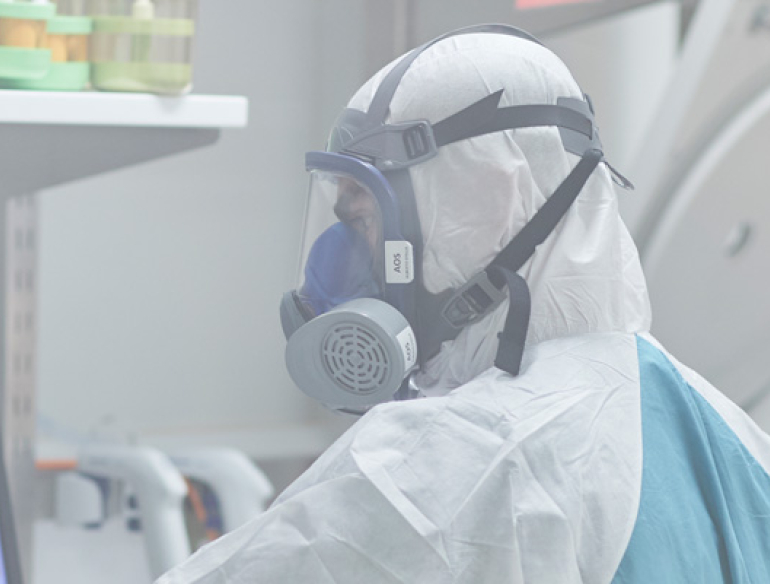The Kirby Institute’s program of research to discover a COVID-19 therapy using antibodies has received a $2.5 million boost from the Australian Government’s Department of Health Medical Research Future Fund (MRFF).
The funding, announced today by the Minister for Health, the Hon. Greg Hunt, will go towards finding a rapid pathway to treatments for COVID-19.
The research is led by the Kirby Institute’s Director, Professor Anthony Kelleher, who brings 20 years’ experience developing successful antiviral treatments for HIV.
“This funding is extremely important for the Kirby Institute, and we applaud the Australian Government for this rapid action to support medical research on COVID-19,” said Professor Kelleher. “This funding will facilitate the upscaling of this research, and will allow us to test these treatments options hopefully before the end of the year.”
“There is currently no treatment for COVID-19, but our initial research indicates that harnessing antibodies from recovered patients will have very favourable outcomes,” continued Professor Kelleher. “The antibodies we use are called hyperimmune antibodies. They are ‘hyperimmune’ because they contain very high levels of SARS-CoV-2 antibodies, which we think will boost the immune response in people who are experiencing severe health complications as a result of COVID-19 and assist them to fight the infection.”
An additional antibody treatment project, a collaboration between the Garvan Institute of Medical Research and the Kirby Institute, has received almost $600,000 in funding through MRFF. This therapeutic approach employs a similar approach to harnessing antibodies from recovered patients, however uses a synthetic ‘monoclonal’ antibody for treatment. This research builds on existing knowledge of monoclonal antibodies from the 2003 SARS outbreak.
“These two antibody projects complement each other. A key part of this research is understanding how and why the SARS-CoV-2 virus responds to a variety of treatment approaches, and we are already uncovering new information about exactly how this virus works. This means that through this treatment research, we are also collecting crucial information to inform vaccine trials,” said Professor Kelleher.
A further promising element to this research is the potential for these treatments to be used as a preventative tool.
“At the Kirby Institute, we have previously demonstrated that antiviral therapies can be taken preventatively for HIV. This is because the medication contains such high levels of antibodies, and so it prevents the infection from taking hold in an individual’s body, even if they are exposed. Until we have an effective vaccine, preventative treatment will be an essential part of our approach to combatting COVID-19, particularly for those at risk, like health care workers and the elderly.”
The Kirby Institute has well-established collaborative network to rapidly progress treatment discoveries through phase I and II clinical trials as they become feasible. The Institute also plays a co-leadership role within the US NIH-sponsored International Network for Strategic Initiatives in Global HIV Trials (INSIGHT), which has a global reach of over 100 clinical trials sites in 40 countries.
“This means we have the capacity to enable the robust and rapid evaluation of these immunotherapies for COVID-19, even if the infection rate remains low in Australia,” says Professor Kelleher.
UNSW Sydney has also provided support to this research through its Rapid Research Response Fund, which enables critical research relating to COVID-19. Read more about the fund, and how you can support this research.
